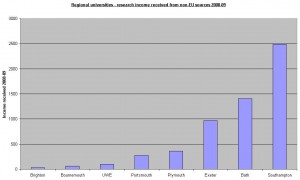 The Leverhulme Trust has funding available for research programme grants. This funding is for projects of up to five years duration and overarching projects should address a central theme of significance through the undertaking of a series of distinctive sub-projects. The 2012 competition themes are:
The Leverhulme Trust has funding available for research programme grants. This funding is for projects of up to five years duration and overarching projects should address a central theme of significance through the undertaking of a series of distinctive sub-projects. The 2012 competition themes are:
- conspiracies
- patronage
- value
Proposals will be scored against the following criteria:
- the opportunity for original thinking in the subject
- the extent to which the proposed topic naturally touches upon an array of sub-disciplines
- the extend to which the treatment of the topic departs from the heartland of a current and established professional specialism
- the significance of the topic as a future issue of debate
The deadline for applications is 4pm on 11 January 2012.
For further information, including definitions of each of the themes, application guidelines, see the call website: http://www.leverhulme.ac.uk/funding/RP/RP.cfm
If you’d like to submit a bid then speak to the lovely people in CRE Operations who will help you with the submission process.
I’d also recommend that all proposals are run through our excellent internal peer review process, the RPRS, to ensure they are as strong as possible prior to submission. For further information on the RPRS contact Caroline O’Kane or see the RPRS website.






 “European Union ministers meeting in Luxembourg have signalled support for draft European Commission plans for an energy efficiency law impacting directly on utilities”
“European Union ministers meeting in Luxembourg have signalled support for draft European Commission plans for an energy efficiency law impacting directly on utilities” 


















 BU professor speaking at Aberdeen Centre for Women’s Health Research (ACWHR)
BU professor speaking at Aberdeen Centre for Women’s Health Research (ACWHR) Reminder: Opportunity to get more involved in preparing Social Work and Social Policy REF 2029 submission – impact and engagement
Reminder: Opportunity to get more involved in preparing Social Work and Social Policy REF 2029 submission – impact and engagement Open access for books tool
Open access for books tool New seed fund for public engagement with research: open for applications
New seed fund for public engagement with research: open for applications Horizon Europe News – December 2023
Horizon Europe News – December 2023